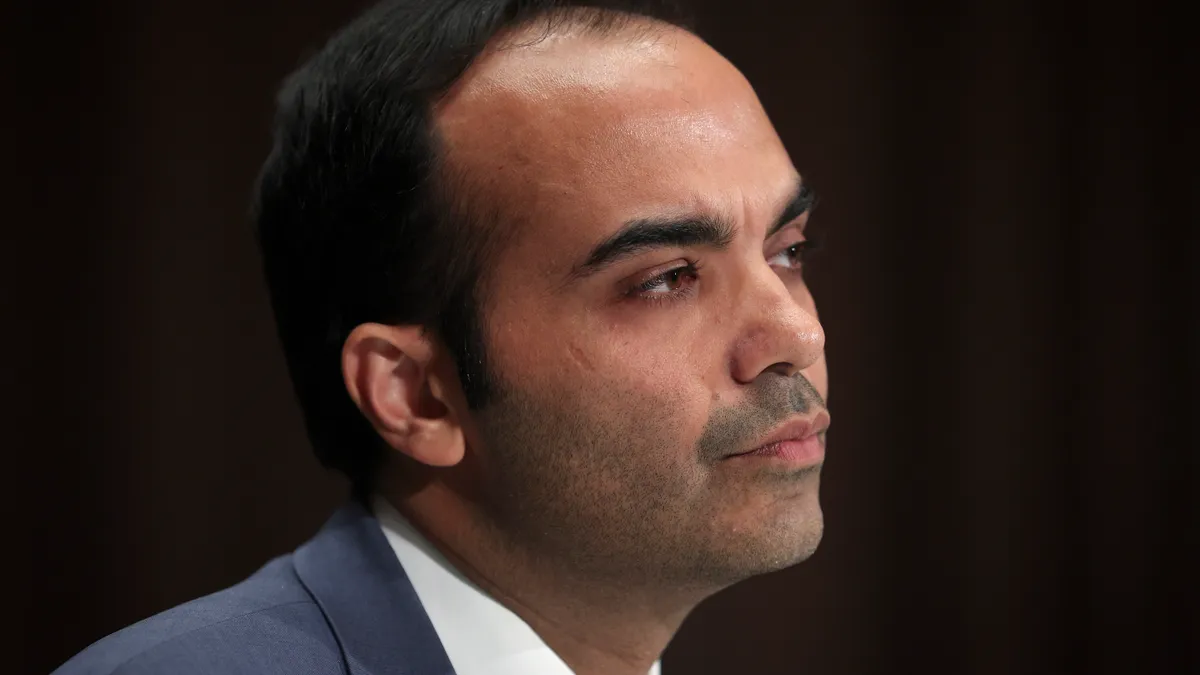A federal judge Monday rejected claims that the Consumer Financial Protection Bureau is overstepping its authority by requiring lenders that make at least 100 small-business loans a year to collect demographic data from borrowers, including their race and gender.
The American Bankers Association, Texas Bankers Association and McAllen, Texas-based Rio Bank had argued the CFPB’s data collection rule would increase loan costs for small businesses, failed to consider comments from banks, and was arbitrary and capricious, in violation of the Administrative Procedure Act.
“An agency does not fail to 'consider' a concern or suggestion simply because it reached a different conclusion,” Chief Judge Randy Crane of the U.S. District Court for the Southern District of Texas, wrote Monday. "It may well be that the final rule proves ill-advised as a policy matter, but that possibility does not itself make the final rule unlawful.”
The trade groups and Rio Bank on Monday indicated they would appeal Crane’s ruling.
"Given the significant harm small business owners and financial institutions face from this rule, our legal fight challenging 1071 will not end here," the plaintiffs said in a statement, referencing the rule’s numbered section in the Dodd-Frank Act.
The CFPB’s small-business data collection rule, issued in March 2023 to root out lending discrimination, has seen its share of pushback. The plaintiffs sued within a month, and Crane issued an injunction exempting Rio Bank and the trade groups’ members from the rule, pending the outcome of a Supreme Court case that questioned the constitutionality of the CFPB’s funding.
Crane expanded the injunction nationwide, and the Senate and House each voted to block the CFPB rule last fall, but President Joe Biden vetoed their efforts. And the Supreme Court upheld the CFPB’s funding structure in May.
The injunction is still in effect, however, until Crane decides on a separate challenge to the CFPB data collection rule, brought by a farming trade group.
Monday’s decision, though, came on a day when the CFPB rolled out its beta platform for lenders to file their small-business borrower data. The bureau in June extended the timeline by which lenders must comply with the data collection rule. The most prolific small-business lenders must begin collecting data by July 18, 2025. Others face 2026 start dates.
The CFPB declined to comment to Reuters or Bloomberg Law regarding Monday’s ruling.
Crane, however, made it clear Monday he was ruling on the legality of the CFPB’s rule and not the “wisdom” of the policy.
Regardless of “however ineffective or counterproductive the substance of the final rule may be,” the “administrative record is voluminous and its breakdown of the bureau’s decisionmaking is comprehensive,” Crane wrote.
The judge also dismissed as exaggeration the plaintiffs’ claims that the CFPB rule is 900 pages long.
"Plaintiffs attempt to portray the final rule as much more imposing than it actually is,” Crane wrote, adding that the length is a markedly more “modest” seven pages.
Crane, likewise, blasted the plaintiffs’ assertion that the CFPB demanded “81 pieces of information” from borrowers. The rule requires 22 data points: 13 mandated by law and nine added by the CFPB, Crane said.
The “81 pieces” narrative was co-opted, though, by Sen. John Kennedy, R-LA, ahead of the Senate’s October vote to block the rule.
Kennedy, at the time, argued the rule “perverts our intention of Section 1071 of the Dodd-Frank Act.”
“They took our 13 pieces of information that we asked for, and they have expanded it to 81. All of a sudden, they want a book,” he said, asserting that some of the requested information is borrowers’ private business.
“They’re going to publish it on their website: Are you gay? Are you lesbian? What race are you?” Kennedy said of the CFPB. “And snoops will be able to go on that website and identify small business people in their community.”
Sen. Sherrod Brown, D-OH, countered that borrowers can decline to submit the information if they wish.
“With this data, we’ll be able to see gaps in the small-business lending market — allowing programs to expand access to credit for small businesses,” Brown said in October. “More data means more accountability — ensuring that lenders reach minority communities.”














